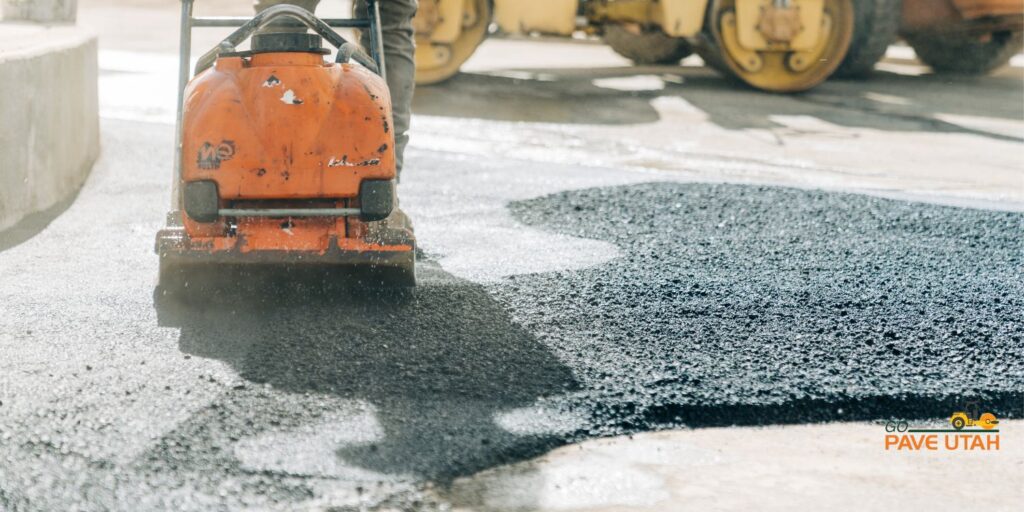
Asphalt is mainly used for paving roadways, but it has various other uses as well. It’s an extremely versatile product, which makes it a popular, widespread (pun intended) material. Here are some of the common sectors you’ll see the use of asphalt.
You already know many roadways include asphalt pavements, but it’s also common outside of common roadways. Railway beds are often made with asphalt. Often, asphalt, which is still yet resilient, is placed directly under the crossties (called sleepers) or a concrete slab. Benefits of asphalt underlayment in railways include a stronger track support below the ballasts, a waterproofing layer that provides consistent load-carrying capabilities, and uniform pressure distribution. It works well for both heavy-loaded tracks and high-speed tracks. Asphalt is also used in airport runways, taxiways, aprons, and parking structures. Not only does asphalt offer a pleasant, quiet ride for passengers on commercial jets, the flexible yet durable pavement is also critical to the safe operation and performance of aircraft. It also offers skid-resistance in necessary portions of airport runways, offering an overall safety element.
Asphalt is commonly used for recreational purposes such as playgrounds, bicycle paths, running tracks, and tennis courts. Like airport runways, the main reason for using asphalt in these recreational areas is the smoothness factor. But another reason is that it’s a low-cost, low-maintenance option. From preschools and daycares to high schools and colleges, asphalt is a popular choice for these campuses.
Asphalt is a great choice for barn floors, greenhouse floors, and roadways on farming properties. Asphalt pavements can help minimize soil erosion in these important agricultural areas, and it’s also a great choice for storing and retaining water. Many fish hatcheries use asphalt in the lining of their retention ponds, and it’s often used for paving livestock containment pens and food storage silos. Many work sites use asphalt for varying purposes, and it’s a popular material for industrial areas. Landfills are often lined with asphalt, especially if they contain biological waste or hazardous materials. The asphalt helps to prevent contamination of the groundwater. Auto manufacturers use asphalt in many ways, such as asphalt-based paints for use on specific metal parts or asphalt coatings to minimize road noise or as protection against rust.
The building construction industry makes good use of asphalt. It’s often used for waterproofing purposes and/or for sealing and insulating products. Using asphalt in tunnels has been discussed by engineering and construction experts for years, and the topic always come to safety. Asphalt possibilities in tunnels are looking good in regard to noise reduction, skid resistance, and an overall lightness of material. Asphalt is also used for dam construction and reservoirs. Asphalt core dams are made of a special hydraulic asphalt mix, which differs a little from paving asphalt. It allows a flexible yet very low permeability core, which has proven to be a safe and effective technology. There are currently over 200 asphalt core dams in the world that have been in operation for decades.